Kids in the Garden – Learning and Growing cannot take place without space. Many of us may not have enough space in our yards (if we even have them) for a garden bed. For some people, container gardening may be a great start, but when you have caught the gardening bug, there is a need for MORE! What can you do? When space in the soil and sunlight is limited, a community garden plot may be an option for your planting needs.
A community garden is an area of land that is shared and gardened by a group of people. Similar to a school garden, this area is planted and maintained by the group.
Our guest writer , Amandine, is here to share with you her community garden experience. Amandine is a talented mom and gardener, who when the sunshine wasn’t long and strong enough in her yard, headed to the local gardening co-op to grow healthy food and teach her children about life cycles and responsibility.

The wonderful life of a garden cooperative
As a parent, we want the best for our children. For me, part of it is feeding them with organic local produce. We are lucky to have in town a few farmers’ markets to choose from and a locally-owned Supermarket offering a wide selection of quality and locally-grown produce.
But I wanted to understand and experience the process of directly providing for my family. Being an apprentice organic gardener, I started in my backyard, reading, seeking advice from my friends and even taking classes at my local Extension Office. Despite my eagerness to succeed and after three failed attempts to grow a garden at home due to too much shade and squirrels, I decided to explore other options to provide organic food to my family.
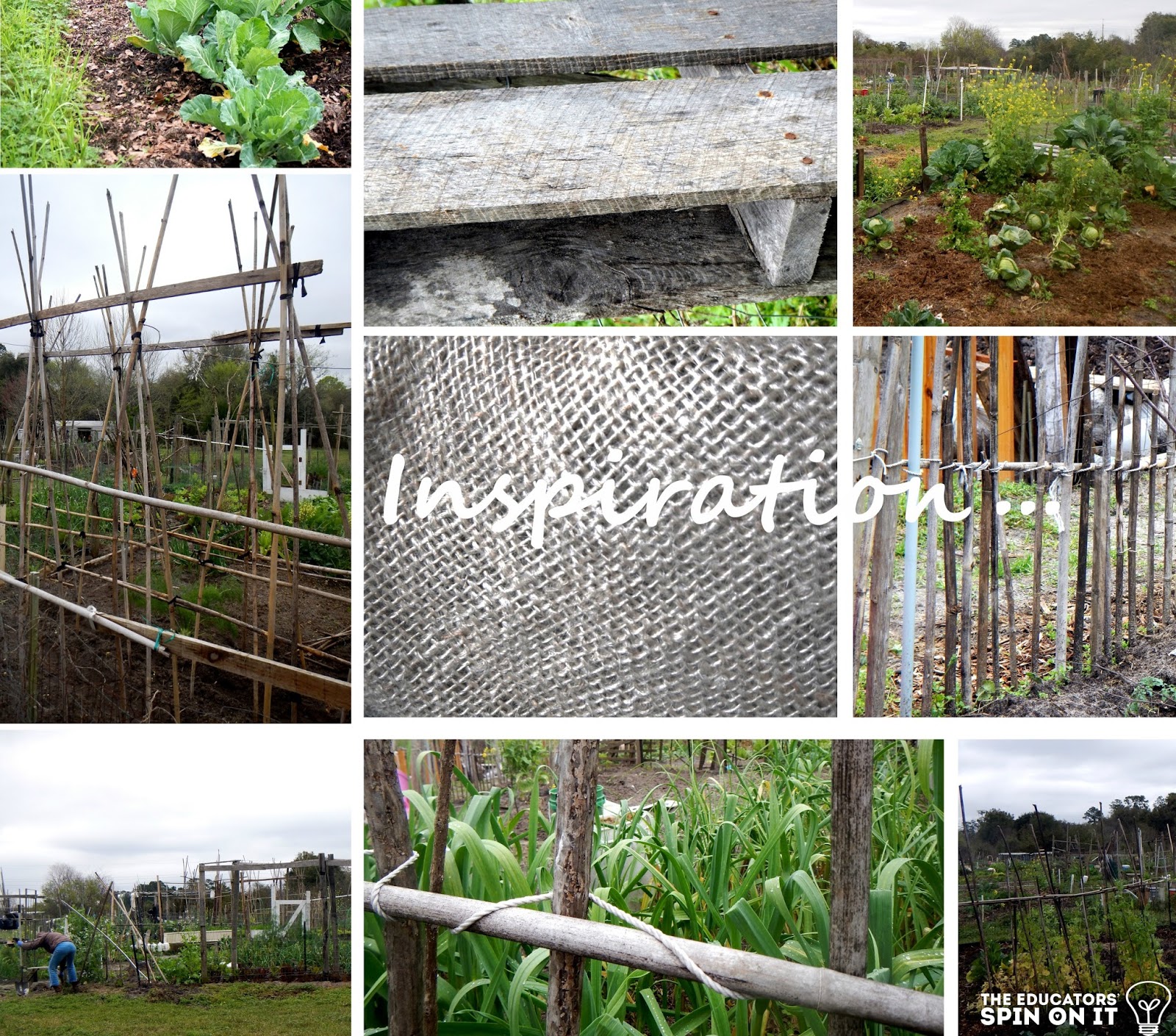
One option was to join an organic buying club but I realized that even if every produce was grown organically, they were not all from local sources as I wanted to.
Finally, I found an Organic Garden Cooperative not far from my house! At first, I was a little reluctant to participate due to the fact that it was a few miles away from my home. (driving every day at the hot season pick to water and weed.) However, the benefits of a cooperative outshines the negatives very quickly.
It gave me inspiration.
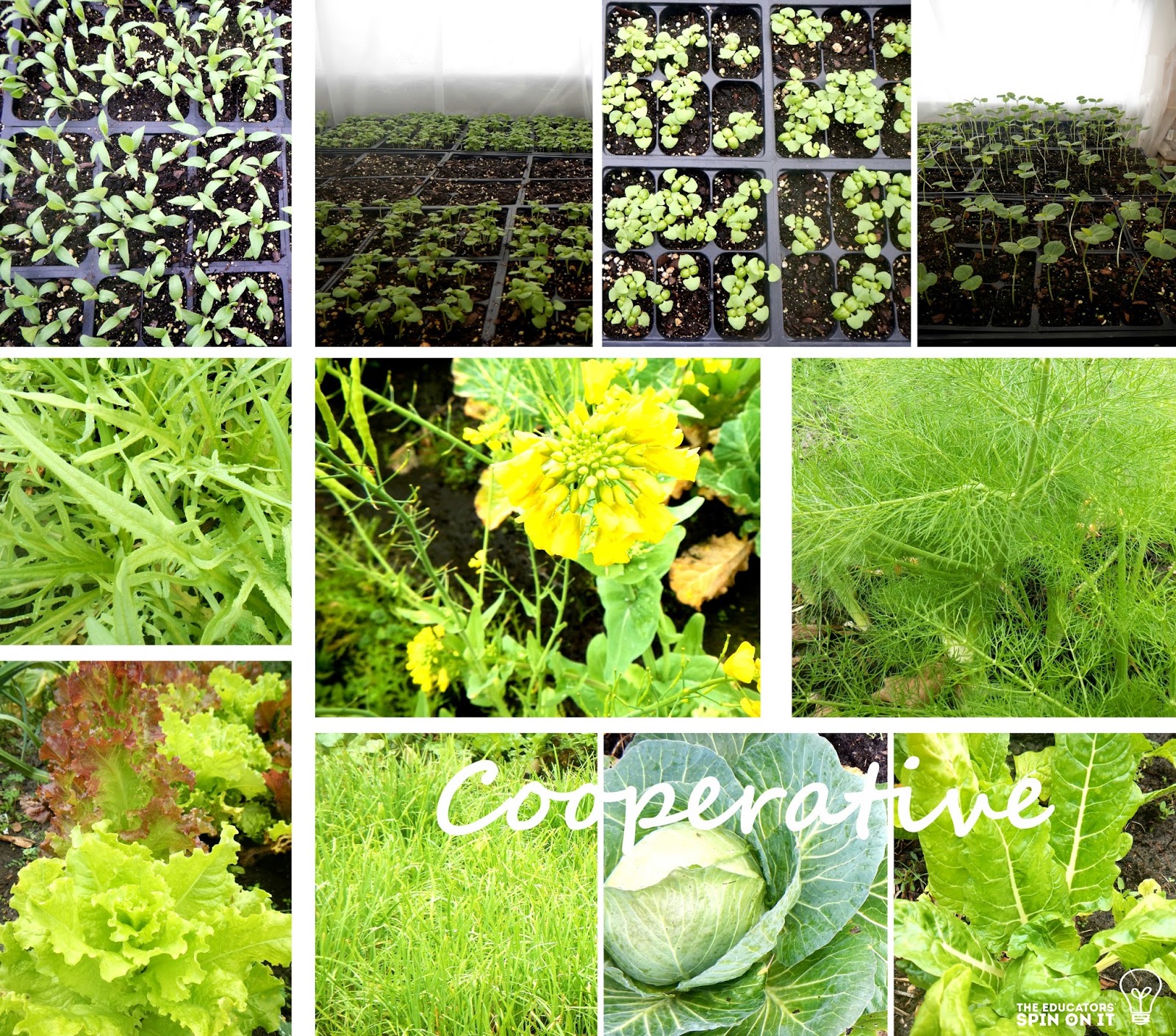
What is a cooperative?
A cooperative is a group of people who voluntarily connect with others in order to benefit. These benefits may include social, economic and cultural benefits. {source http://en.wikipedia.org/wiki/Cooperative} Cooperatives are typically based on
self-help, self-responsibility, democracy and equality, equity and solidarity; and
The Seven Cooperative principles:
1. People choose to participate
2. Members are given the opportunity to vote and discuss changes
3. Members contribute $ to the garden.
4. There is place for individuality within the group.
5. Teaching and learning opportunities are available.
6. Members cooperate.
7. There is a general concern for the community.
This definition of a cooperative seems to fit in my definition as well, which implies caring for others and our environments now and for a prosperous future. Teamwork is what makes our community garden appealing and thriving. I was surprised how many gardeners stopped by the “newbie” plot to provide advice or tips – some provided in body language due to differences in spoken ones.

Joy and philosophy of the cooperative
I enjoy being part of a community that shares knowledge, manpower and utilizes every members strengths to help the garden reach its full potential. I would not be able to be so bold in my gardening or have so many proper tools on hand if I was at home. Also, I like the idea of having a life cycle heaven like bees, birds, insects etc., that are attracted by such a healthy environment.
I am fond of the way they describe the befits of nourishing the soil to grow healthy plants versus using non-organic method of fertilizing. Per our Pesticides in the Organic Garden Coop, document, “Chemical pesticides are not allowed. All too often, these products kill discriminately, and, by eliminating beneficial insects, birds, etc., upset a delicate balance. In nature, generally the strong prey upon the weak; it follows that destructive insects will prefer poorly-cultivated, undernourished plants. A clean,carefully cultivated garden in high state of fertility is our best defense against predators. Companion plantings and crop rotation are also effective measures.”
For $15 per semester and participation to 3 work parties (6 hours total), members in our garden get to enjoy a full plot (12 x 25 feet) to garden, plus access to community tools, water, compost, some seeds, and a shared herb garden.
Work parties are mandatory and meant to maintain, repair or develop the garden such as mow paths, collect trash, repair tools, work on compost pile (consolidate and water), sweep out and organize shed. If you have a specific interest, a few specialty groups are there to satisfy curiosity and provide enrichment, like:Beekeeping Working Group.
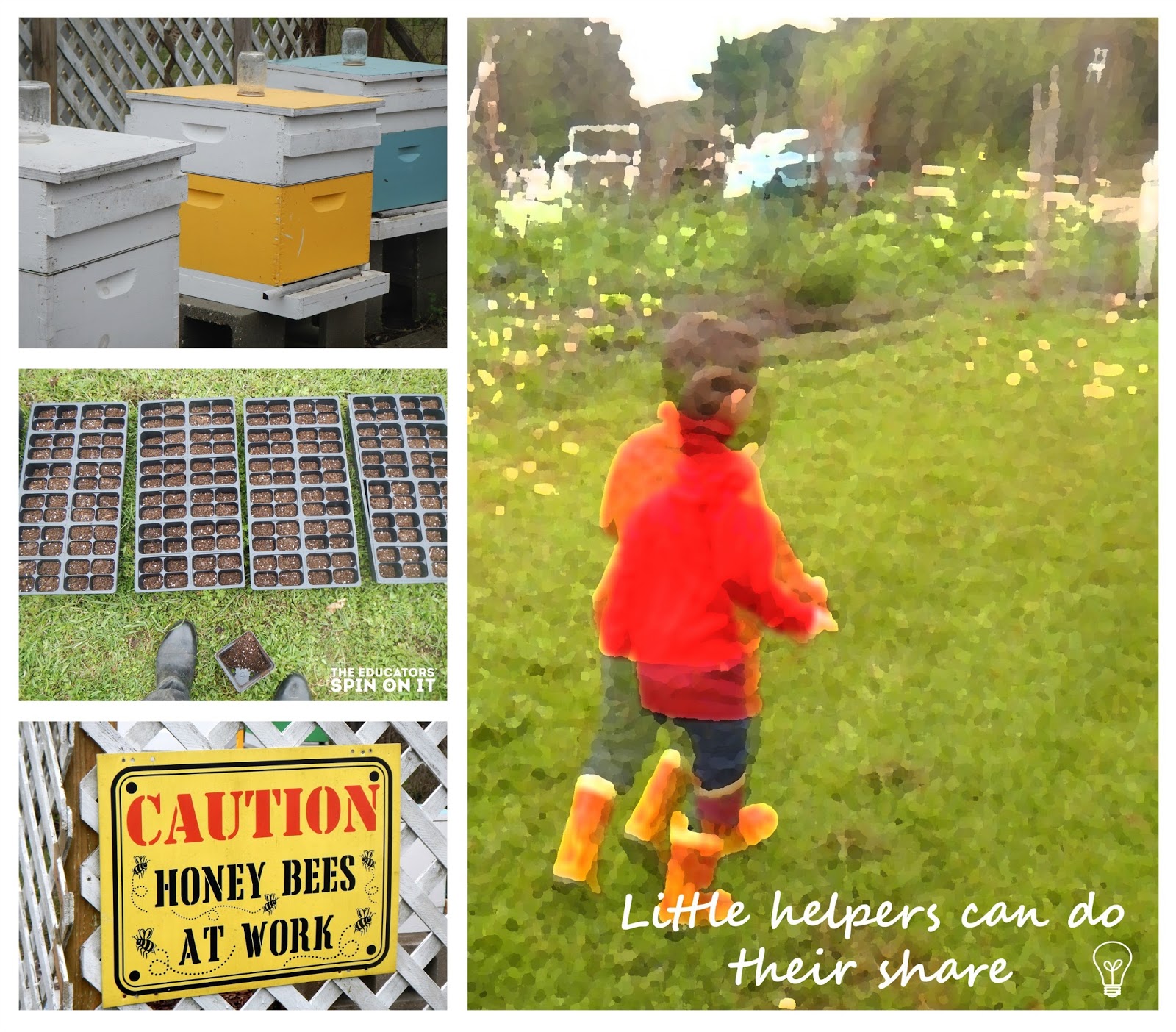
Young Children and the Community Garden
Since it is a collective space, parents don’t have the same control about the environment as you may have at home. For instance, I tend to take my 4-years old with me often as he listens and follows directions but my 2-years old likes to wander around and play hide and seek, so work is hard to accomplish. Also, there are pills of fire ants to avoid and muddy holes where they can get stuck in. Proper gear and adult supervision is essential!
In addition to planting and harvesting, my 4 year old likes to dig worms as well as checking on our bee hives with our bee keeper. This is another way to incorporate science into our gardening lessons. It is quite a long process (2 hour) to check on the honey production, the queen well-being and larva growth in each hive, but he was fully interested and followed the instructions to stay safe and avoid stressing the bees.
I will start soon taking my older son to the community garden work days and let him work on age-appropriate tasks as a productive member of the community. Until then, the greenhouse manager let the kids and I come and plant seedlings for the spring garden to share among our 200 gardeners. It is important to pitch in and help to make it OUR garden. So, there are tasks available for every age and abilities and in return you get helped on the ones you are not so good at or fond of. My next project will be to bring back some gardening at home with an aquaponics system. I cannot wait to see the results…
Amandine
Born and raised in the French countryside, Amandine is now a mother of two active boys living in the Sunshine State, Florida. Finding my way through culture shock and an unexpected honorary career that I never thought would be so demanding but yet so life changing. I am re-creating myself at thirty through my children. For more of her writing, you may be interested in this article she wrote on designing a home learning space.
For more Best Plants to consider planting in your garden, we recommend these articles:
Have you ever heard of a community garden?
Do you know if one exists in your city?
I strongly encourage you to visit a community garden if you are able too!
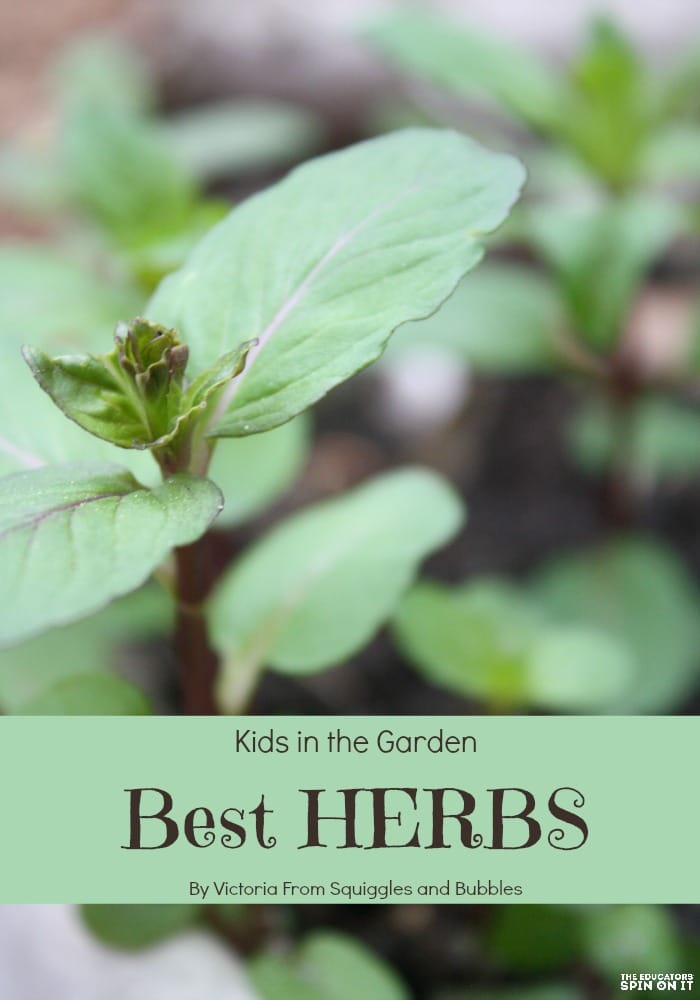
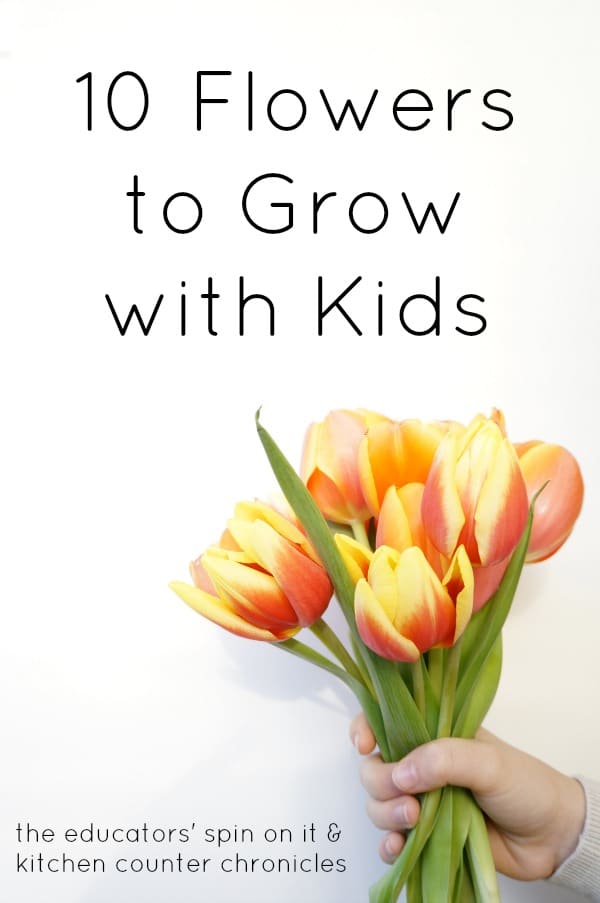
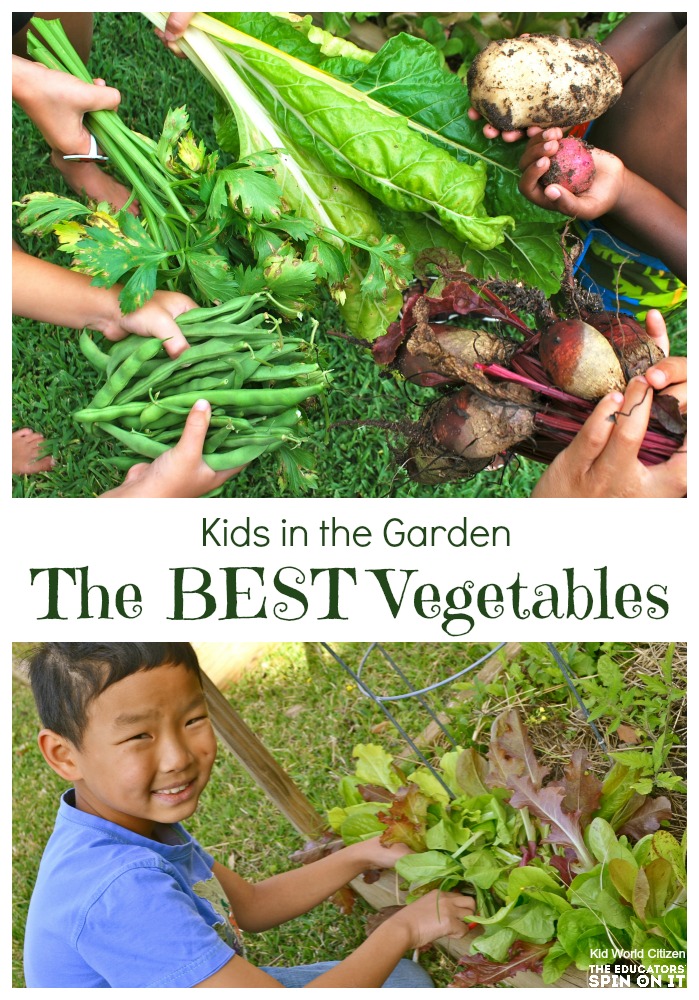






What a great way to provide fresh organic food for your family. I love that your children are joining in, they will learn quite a bit about gardening as they grow.
This sounds so fun! I didn't know these existed. I will be looking into it in our neighborhood.
Thank you so much Amandine for sharing about your Garden Co-Op. It's been fun to hear about your successes and also enjoy the produce you're growing from it.